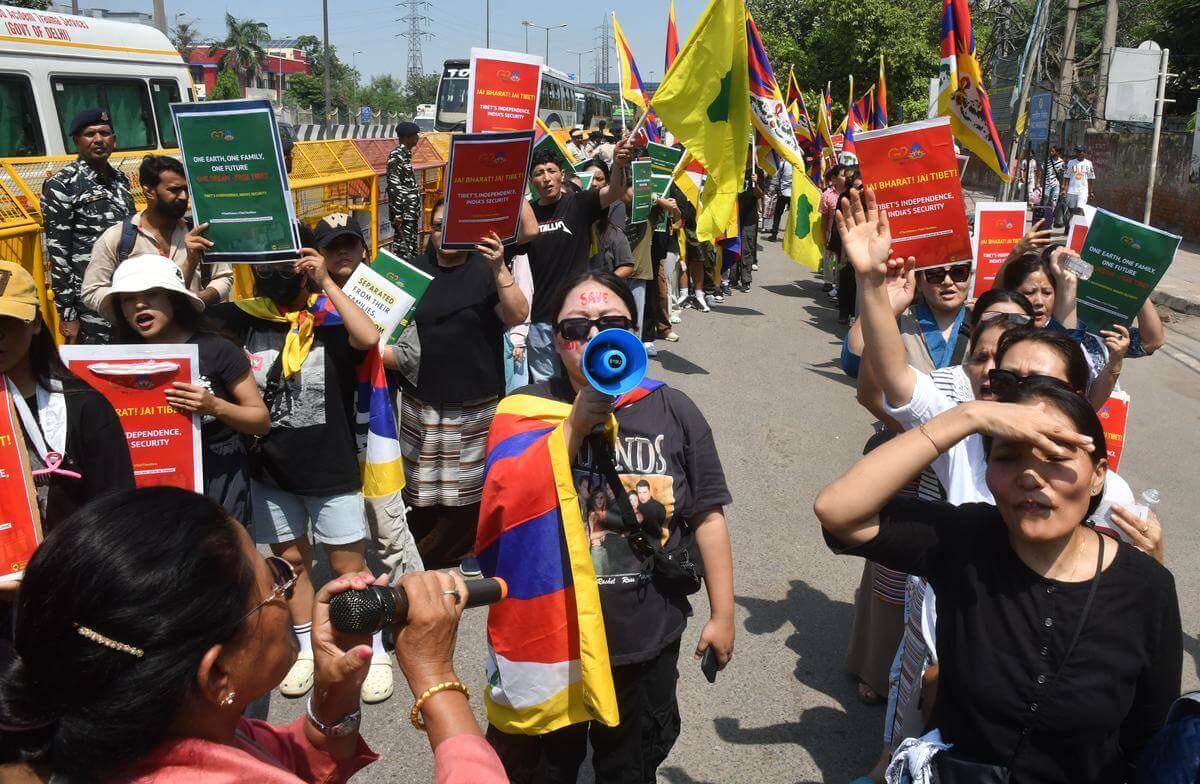More than 300 protesters converged near India’s Parliament House on Sunday to voice their opposition to China’s claims over Tibet. The Tibetan community gathered in New Delhi to mark the 65th Tibetan National Uprising Day, commemorating the failed revolt against Chinese rule in 1959.
Protesters’ Message
The demonstrators, carrying Tibetan flags and portraits of the Dalai Lama, expressed their dissent with slogans such as “Tibet was never a part of China” and “China should leave Tibet.”
The protest was organised by the Tibetan Youth Congress, aiming to draw attention to the ongoing struggle for Tibetan autonomy.
Tibetan Refugees in India
Tibetan refugees in India trace their history back to 1959, when a failed uprising against Chinese rule led to a mass exodus. Subsequently, the spiritual leader of the country, the 14th Dalai Lama, fled to the Indian town of Dharmsala, where he established his headquarters. Despite hosting Tibetan exiles, India officially recognises Tibet as part of China.
Dalai Lama’s Stand
The now 88-year-old Dalai Lama, revered as the spiritual leader by Tibetans, maintains that he is not a separatist. He advocates for substantial autonomy for Tibet and the preservation of its native Buddhist culture.
The Dalai Lama has resided in India since the failed uprising and continues to be a symbol of resistance against Chinese rule.
#TibetUprisingDay
— TYC (@TYCentrex) March 10, 2024
✊🏼✊🏼✊🏼 https://t.co/ofETOeQASD pic.twitter.com/2GY7zrm790
Accusations Against China
The Tibetan government-in-exile, based in India, accuses China of gross human rights violations in Tibet. They claim that the Chinese regime has systematically denied fundamental rights to the Tibetan people, leading to the erosion of Tibetan identity. The government-in-exile remains vocal in international forums, seeking support for Tibet’s cause.
1959 Uprising
In 1959, Tibetans rose against the Chinese Communist regime, resulting in a failed revolt. The Chinese occupation of Tibet, as termed by Tibetan activists, led to brutal suppression, causing the deaths of over a million Tibetans who peacefully protested against the oppressive Chinese rule. The events of 1959 marked a significant turning point in the Tibetan struggle for autonomy.
The Tibetan Youth Congress
The organising force behind the New Delhi protest, the Tibetan Youth Congress, plays a crucial role in amplifying the Tibetan voice. By organising events like Sunday’s march, they aim to draw global attention to the plight of Tibetans and their ongoing fight for autonomy.

